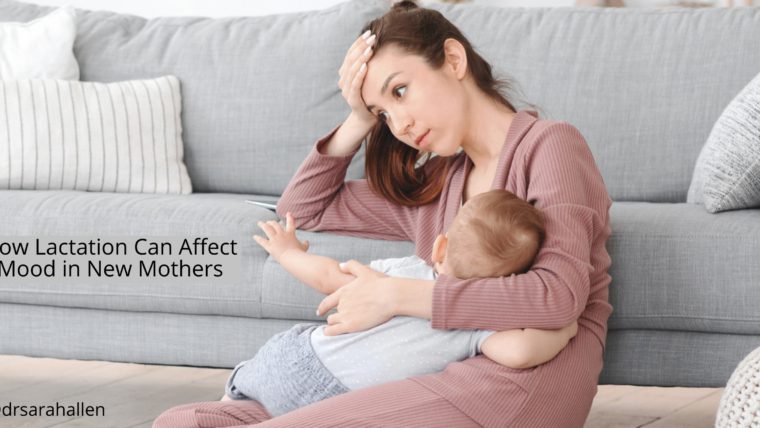It can be challenging knowing what to say to a mom who has postpartum depression (PPD) . You want to offer support, but don’t want to say the wrong thing. PPD is a serious condition that affects many new mothers, and it’s important to approach conversations with sensitivity and understanding.
Many moms with PPD feel overwhelmed and often isolated. Saying the wrong thing, even if it’s well-intentioned, can make her feel worse. Simple comments that minimize her experience or offer unsolicited advice can be hurtful. Instead, offering genuine support and compassionate listening can make a big difference.
This article will guide you on what not to say to a mom who is experiencing PPD and provide suggestions for supportive things to say instead. By being mindful of your words, you can help her feel more understood and supported during this difficult time. Your kindness and empathy can play a crucial role in her journey toward recovery.
Avoid Minimizing Her Experience
When talking to a mom with postpartum depression, avoid saying things that minimize her experience. Statements like “Choose to be happy, your baby is so darling” or “It’s all in your head” can be very hurtful. These comments make it seem like her feelings are not valid or important. PPD is a real mental health condition and should be taken seriously.
Never say, “It could be worse” or “At least your baby is healthy.” While these statements may seem like a way to look on the bright side, they can make her feel guilty for struggling. PPD is not about the baby’s health; it’s about the mother’s mental health. Acknowledging her feelings and struggles is important for her recovery.
Instead, let her know that her feelings are valid. Say, “I’m here for you” or “It’s okay to feel this way.” These supportive statements show that you acknowledge her struggles and are willing to listen. Empathy and understanding can go a long way in helping her feel less alone.
Don’t Offer Unsolicited Advice
Offering advice without being asked can be frustrating for a mom going through PPD. Phrases like “You should try getting more sleep” or “Just exercise more” may seem helpful but often come across as dismissive. She has likely heard plenty of advice and what she needs most is understanding and support.
Avoid saying, “Just think positively” or “Try to relax.” These statements can oversimplify her condition and make her feel that her situation is not being taken seriously. PPD is complex and often requires professional treatment, not just lifestyle changes.
If you want to offer help, ask first. For example, you can say, “Would it be helpful if I watched the baby for a bit?” or “Can I do anything to make today easier for you?” This shows that you care and are willing to support her in a way that she finds helpful. Always follow her lead and respect her needs and feelings.
Be Careful With Comparing Experiences
When talking to a mom who has had postpartum depression, avoid comparing her experience to your own or someone else’s. Saying things like “My sister had it worse” or “I know someone who got over it quickly” can be discouraging. Every person’s experience with PPD is unique, and comparing struggles could make her feel misunderstood.
Statements like “Other moms deal with it too” or “You’ll get over it just like everyone else” may seem like they offer perspective, but they can minimize her feelings. These comments can make her feel that her pain is not unique or important.
Instead, focus on her individual experience. Offer support by saying, “Tell me more about how you’re feeling” or “I’m here to listen if you want to talk.” These types of statements show genuine care and encourage her to share her feelings without fear of judgment. Listening without comparing her to others makes her feel valued.
Supportive Things to Say to a Mom with PPD
Knowing what to say can make a big difference in supporting a mom with PPD. Here are some helpful things you can say:
- “You’re doing a great job.”
- “It’s okay to feel the way you do.”
- “How can I help make things easier?”
- “I’m here whenever you need to talk.”
- “Your feelings are important.”
- “You’re not alone in this.”
These supportive statements validate her feelings and show that you care. Offering your presence and understanding can be incredibly comforting.
Encouragement and empathy make her feel less isolated. Let her know it’s okay to seek professional help and that you support her in any way she needs. Being there for her with kind words and actions makes a significant impact on her journey to recovery.
Conclusion
Speaking to a mom who has experienced postpartum depression requires sensitivity and care. Avoid minimizing her feelings, offering unsolicited advice, or making comparisons. Instead, focus on supportive statements that validate her experience and show your genuine concern.
Small words of encouragement and understanding can make a big difference. PPD is a tough journey, and having a compassionate support system can help her feel less alone. Your listening ear and kind words can aid in her healing process.
For more resources and support on maternal mental health, visit the Postpartum Depression Alliance of Illinois. We are dedicated to promoting awareness, prevention, and treatment of maternal mental health issues. Reach out to us for guidance and support.
You May Also Find These Articles Useful:
How To Support A New Mom Who Is Struggling With Postpartum Depression




